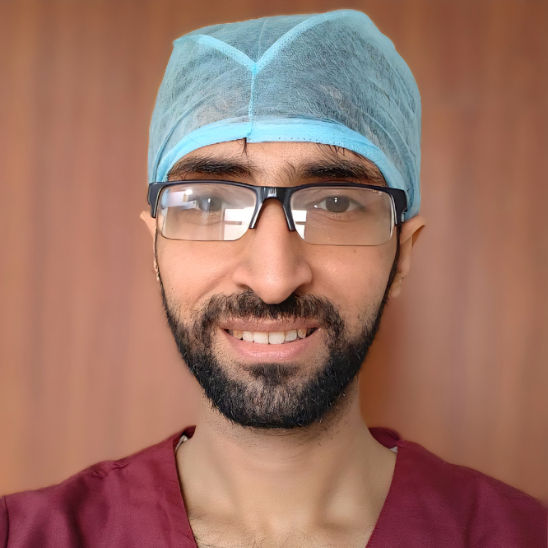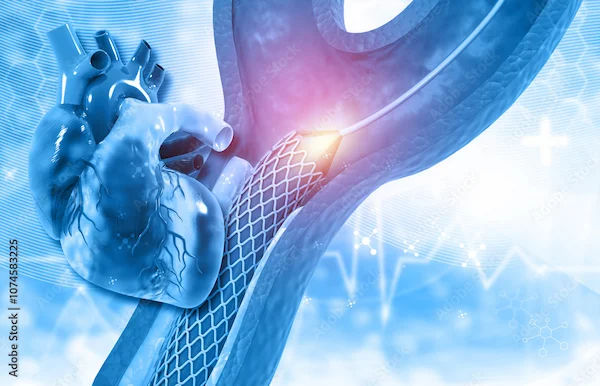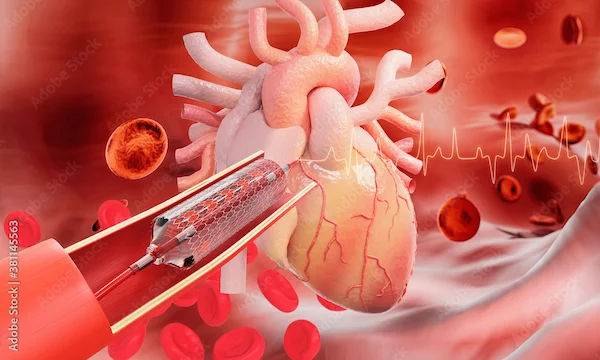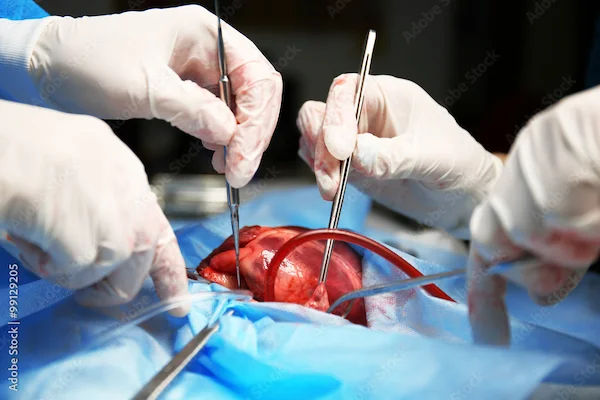Heart Failure After Bypass Surgery
Worried about heart failure after bypass surgery? Learn the symptoms, causes, and management tips to support heart health and recovery after CABG.

Written by
Last updated on 10th Jul, 2025

Introduction
Heart bypass surgery, also known as coronary artery bypass grafting (CABG), is a common procedure to improve blood flow to the heart by creating new pathways around blocked arteries. While this surgery can significantly improve heart function, some patients may experience heart failure afterward. If you or a loved one has undergone bypass surgery and are concerned about heart failure, this article will help you understand the condition, its symptoms, causes, and ways to manage it effectively.
What Is Heart Failure After Bypass Surgery?
Heart failure doesn’t mean the heart has stopped working—it means the heart isn’t pumping blood as efficiently as it should. After bypass surgery, some patients may develop heart failure due to weakened heart muscles, complications from the surgery, or pre-existing conditions.
Common Symptoms to Watch For
If you’ve had bypass surgery, be aware of these signs of heart failure:
Shortness of breath, especially when lying down or during physical activity
Swelling (oedema) in the legs, ankles, or abdomen due to fluid buildup
Persistent fatigue and weakness
Rapid or irregular heartbeat
Sudden weight gain from fluid retention
Reduced ability to exercise
If you notice these symptoms, consult your doctor immediately. Early detection and treatment can prevent complications.
Consult Top Specialists for Personalised Heart Health Advice
Why Does Heart Failure Happen After Bypass Surgery?
Several factors can contribute to heart failure after bypass surgery:
1. Pre-existing Heart Damage – If the heart muscle was already weak before surgery, recovery may be harder.
2. Surgical Complications – Rarely, the surgery itself can affect heart function.
3. Incomplete Blood Flow Restoration – If not all blocked arteries were treated, the heart may still struggle.
4. Other Health Conditions – High blood pressure, diabetes, or kidney disease can worsen heart function.
5. Lifestyle Factors – Poor diet, lack of exercise, or smoking can slow recovery.
How to Manage Heart Failure After Bypass Surgery
While heart failure is a serious condition, proper management can help improve quality of life. Here are some key steps:
1. Follow Your Doctor’s Treatment Plan
Take prescribed medications like beta-blockers, ACE inhibitors, or diuretics regularly.
Attend follow-up appointments to monitor heart function.
2. Adopt a Heart-Healthy Diet
Reduce salt intake to prevent fluid retention.
Eat more fruits, vegetables, whole grains, and lean proteins.
Limit processed foods, saturated fats, and sugary drinks.
3. Stay Active (But Don’t Overdo It)
Gentle exercises like walking or yoga can strengthen the heart.
Avoid heavy lifting or intense workouts without medical approval.
4. Monitor Fluid Intake & Weight
Weigh yourself daily—sudden weight gain may indicate fluid buildup.
Limit excessive fluids if advised by your doctor.
5. Quit Smoking & Limit Alcohol
Smoking worsens heart disease—seek help to quit if needed.
Excessive alcohol can weaken the heart—consume in moderation or avoid it.
6. Manage Stress & Mental Health
Stress can strain the heart—practice relaxation techniques like deep breathing or meditation.
Seek support from family, friends, or a counsellor if feeling anxious or depressed.
When to Seek Emergency Help
Call your doctor or visit the hospital immediately if you experience:
Severe shortness of breath
Chest pain or pressure
Fainting or extreme dizziness
Bluish lips/skin or other signs of oxygen deprivation
You can easily book a consultation or schedule a test through the Apollo24|7 app or website.
Can Heart Failure Be Reversed?
While some cases of heart failure can improve with treatment, others may require long-term management. The key is early intervention, lifestyle changes, and sticking to medical advice.
Final Thoughts
Heart failure after bypass surgery can be challenging, but with the right care, many patients lead active, fulfilling lives. Pay attention to symptoms, follow medical advice, and make healthy lifestyle choices. If you have concerns, don’t hesitate to reach out to your healthcare provider—early action makes a big difference.
Consult Top Cardiologists
Consult Top Specialists for Personalised Heart Health Advice

Dr. Sumanta Chatterjee
Cardiologist
12 Years • MBBS,MD General Medicine,DM Cardiology
Kolkata
HealthYou Speciality Clinic & Diagnostics., Kolkata
(25+ Patients)

Dr. Amit. A. Bharadiya
Cardiologist
12 Years • MBBS, MD General Medicine, DNB Cardiology
Maharashtra
Surabhi Hospital, Maharashtra, Maharashtra

Dr. Nataraja Setty
Cardiologist
21 Years • MBBS, MD (General Medicine), DM (Cardiology)
Bengaluru
Sapphire heart care clinic, Bengaluru
Dr. Dixit Garg
Cardiologist
10 Years • MBBS , DNB (General medicine) , DNB (cardiology)
Gurugram
Smiles & Hearts, Gurugram

Dr. Pinaki Nath
Cardiologist
8 Years • MBBS, MD General Medicine, DM Cardiology
Barasat
Diab-Eat-Ease, Barasat
Consult Top Cardiologists

Dr. Sumanta Chatterjee
Cardiologist
12 Years • MBBS,MD General Medicine,DM Cardiology
Kolkata
HealthYou Speciality Clinic & Diagnostics., Kolkata
(25+ Patients)

Dr. Amit. A. Bharadiya
Cardiologist
12 Years • MBBS, MD General Medicine, DNB Cardiology
Maharashtra
Surabhi Hospital, Maharashtra, Maharashtra

Dr. Nataraja Setty
Cardiologist
21 Years • MBBS, MD (General Medicine), DM (Cardiology)
Bengaluru
Sapphire heart care clinic, Bengaluru
Dr. Dixit Garg
Cardiologist
10 Years • MBBS , DNB (General medicine) , DNB (cardiology)
Gurugram
Smiles & Hearts, Gurugram

Dr. Pinaki Nath
Cardiologist
8 Years • MBBS, MD General Medicine, DM Cardiology
Barasat
Diab-Eat-Ease, Barasat




